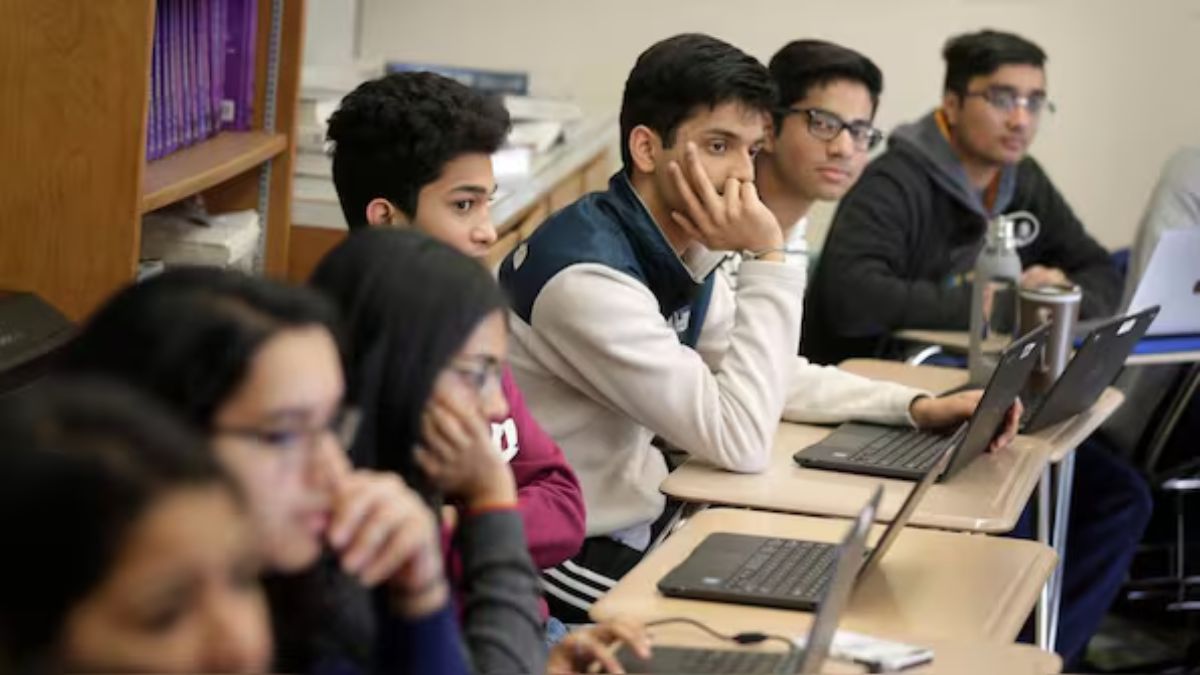) |
|
The Trump administration's increasingly stringent immigration policies have cast a long shadow over the dreams of numerous Indian students pursuing higher education in the United States. Once a beacon of opportunity, the US now presents a landscape of uncertainty and financial strain for these students, forcing many to reconsider their aspirations in a country that once seemed to promise limitless possibilities. The narrative is one of rising anxieties, fueled by random checks by immigration officials, dwindling job prospects, and the ever-present threat of deportation. The financial burden of studying in the US, already substantial, is further exacerbated by the fear of losing part-time employment, a vital source of income for many students.
A recurring theme throughout the experiences shared by Indian students is the increased frequency of random checks by uniformed officers. These checks, often demanding the presentation of student IDs and work authorization documents, generate immense stress and fear. Many students work off-campus, exceeding the legally permitted 20 hours per week, to cover their living expenses and substantial student loans. This precarious situation is amplified by the heightened risk of deportation, pushing many students to abandon their part-time jobs, a decision that often leads to further financial hardship and a sense of vulnerability. The accounts paint a vivid picture of fear and uncertainty: students recount being questioned by local police, interrogated by ICE or CBP agents, and living in constant dread of potential encounters with immigration authorities. These encounters are not only stressful but also often disruptive to their studies and overall well-being.
The impact extends beyond the immediate anxieties of current students. Graduates, too, are facing significant challenges in securing employment in the US. The ‘America First’ agenda, with its emphasis on localization, has made it considerably harder for Indian graduates to obtain visa sponsorships and employment. This contrasts sharply with the previous expectation that a US degree would guarantee a smooth transition into a successful career. The tightening of immigration policies, especially regarding H-1B visas, which are crucial for many Indian professionals, has created a climate of uncertainty and diminished job prospects. This situation has forced many to question the viability of their American dream, highlighting the significant risks and sacrifices involved in pursuing higher education in the US under the current political climate. This trend is further underscored by reports showing a decrease in the number of Indian students applying to US universities.
The financial implications for both students and their families are substantial. The cost of studying in the US is already significant, placing a considerable burden on middle-class Indian families who often make substantial financial sacrifices to send their children abroad. This cost is further compounded by the uncertainty surrounding employment opportunities and the potential loss of income. The financial investments, often including substantial loans, are becoming increasingly risky, causing many families to reconsider the value proposition of a US education. This shift in perspective is reflected in the reported decrease in inquiries from students seeking to study in the US, indicating a broader trend of reconsidering the perceived risks and rewards of pursuing higher education in the US.
The situation has led many Indian students and their families to explore alternative options for higher education, with European countries gaining increasing popularity. The UK, Germany, Ireland, Italy, and France are emerging as attractive alternatives, offering a perceived safer and more predictable pathway to higher education and employment opportunities. This shift represents a significant change in the landscape of international education, reflecting the growing concerns about the increasing restrictiveness of the US immigration system and the resulting impact on international students. The future of Indian students pursuing higher education in the US remains uncertain, with many questioning whether the potential rewards still outweigh the considerable risks.
While some prominent figures have advocated for high-skill immigration, the conflicting statements and policies of the Trump administration have created a climate of ambiguity and apprehension. The uncertain future of the H-1B visa program, a vital pathway for skilled workers, further exacerbates these anxieties. This inconsistency in messaging has left many Indian students and professionals feeling vulnerable and unsure of their future prospects in the US. The narrative is one of shifting priorities, shattered expectations, and a reassessment of the once-coveted American dream, leaving many questioning the value of their investment and the future of their aspirations within the US context.
Source: Why Trump's deportation threat has left Indian students in the US worried
